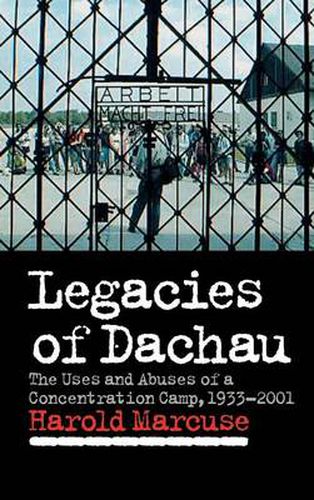Readings Newsletter
Become a Readings Member to make your shopping experience even easier.
Sign in or sign up for free!
You’re not far away from qualifying for FREE standard shipping within Australia
You’ve qualified for FREE standard shipping within Australia
The cart is loading…






Auschwitz, Belsen, Dachau. Three generations later, these names still evoke the horrors of Nazi Germany around the world. This book takes one of these sites, Dachau, and traces its history from the beginning of the twentieth century, through its twelve years as Nazi Germany’s premier concentration camp, to the camp’s postwar uses as prison, residential neighborhood, and, finally, museum and memorial site. With superbly chosen examples and an eye for telling detail, Legacies of Dachau documents how Nazi perpetrators were quietly rehabilitated to become powerful elites, while survivors of the concentration camps were once again marginalized, criminalized, and silenced. Combining meticulous archival research with an encyclopedic knowledge of the extensive literatures on Germany, the Holocaust, and historical memory, Marcuse unravels the intriguing relationship between historical events, individual memory, and political culture, to offer the first unified interpretation of their interaction from the Nazi era to the twenty-first century.
$9.00 standard shipping within Australia
FREE standard shipping within Australia for orders over $100.00
Express & International shipping calculated at checkout
Auschwitz, Belsen, Dachau. Three generations later, these names still evoke the horrors of Nazi Germany around the world. This book takes one of these sites, Dachau, and traces its history from the beginning of the twentieth century, through its twelve years as Nazi Germany’s premier concentration camp, to the camp’s postwar uses as prison, residential neighborhood, and, finally, museum and memorial site. With superbly chosen examples and an eye for telling detail, Legacies of Dachau documents how Nazi perpetrators were quietly rehabilitated to become powerful elites, while survivors of the concentration camps were once again marginalized, criminalized, and silenced. Combining meticulous archival research with an encyclopedic knowledge of the extensive literatures on Germany, the Holocaust, and historical memory, Marcuse unravels the intriguing relationship between historical events, individual memory, and political culture, to offer the first unified interpretation of their interaction from the Nazi era to the twenty-first century.